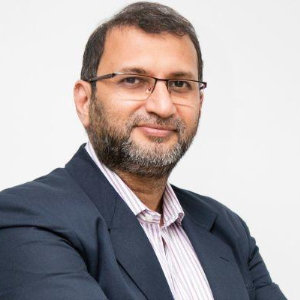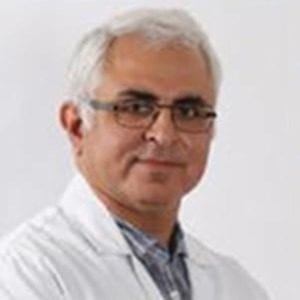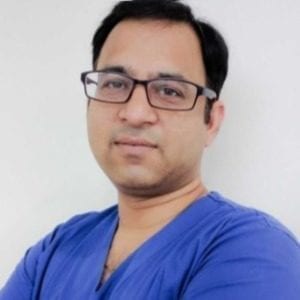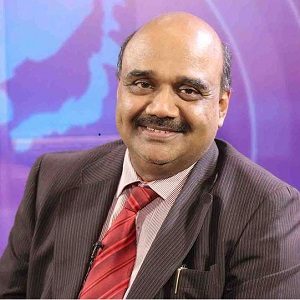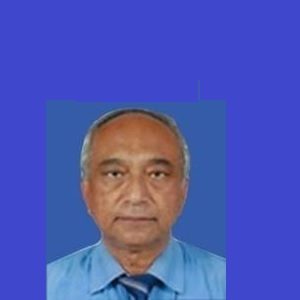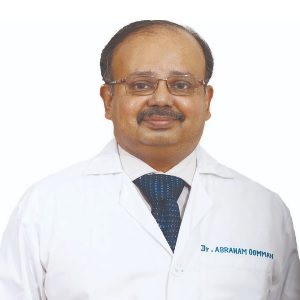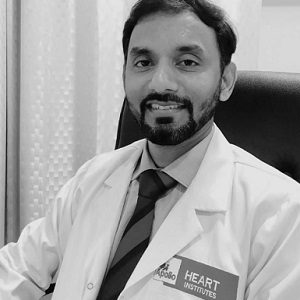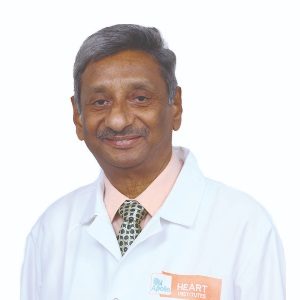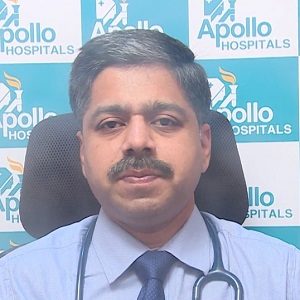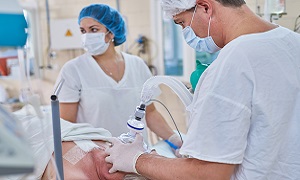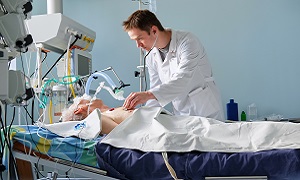Best Doctors in India for Aortic Valve Repair / Replacement
- Cardiac Surgeon, Mumbai, India
- Over 24 years’ experience
Profile Highlights:
- Dr. Zainulabedin Hamdulay is one of the best cardiac surgeons in Mumbai, India, and specializes in devising new and innovative techniques for cardiac surgeries.
- He has 24+ years of experience and has performed over 8000 cardiac surgeries that included complex valve repairs, congenital cardiac surgery, CABG, and several minimally invasive cardiac surgeries.
- With a motive to provide the best, affordable and comprehensive cardiac care to all his patients, he founded the Hamdulay Heart Foundation to provide aid to the economically backward community.
- Cardiologist, Gurugram, India
- Over 20 years’ experience
Profile Highlights:
- Dr. Hemant Madan is an experienced and accomplished cardiologist, with a professional experience of around 20 years.
- His expertise includes all aspects of cardiology, including pediatric cardiology, complex coronary interventions, device implantation, all kinds of rhythm disorders, percutaneous treatment of valve stenosis, and peripheral interventions.
- Dr. Madan pursued his Fellowship at the Royal College of Physicians from Edinburgh in UK.
- Cardiac Surgeon, Gurugram, India
- Over 15 years’ experience
Profile Highlights:
- Dr. Rachit Saxena is an experienced cardiac surgeon, who is known for his extreme dedication to his profession, and for providing absolute patient satisfaction.
- Supported by an efficient cardiac surgical team, Dr. Saxena is known for successfully managing the most complex of cardiac surgical problems.
- Dr. Rachit Saxena is known especially known for the capability to perform cardiac surgery with minimal blood requirement and ensure early mobilization and return to work.
- Cardiothoracic Surgeon, Chennai, India
- Over 25 years’ experience
Profile Highlights:
- Dr. T Sundar is one of the best cardiothoracic surgeons in India.
- He is having extensive exposure to critical heart diseases and he has operated on them successfully.
- Dr. T Sundar is a Senior Consultant at Apollo Hospitals since 2003.
- He has been associated with international standards of surgery and diagnosis since his education period.
- Cardiothoracic and Vascular Surgeon, New Delhi, India
- Over 36 years’ experience
Profile Highlights:
- Dr. N Sastri is a renowned cardiothoracic surgeon in India with extensive experience in critical heart surgeries.
- He has nearly 36 years of experience and is a senior consultant- Cardiothoracic & Vascular Surgery with Indraprastha Apollo Hospitals, New Delhi.
- Dr. Sastri specializes in the diagnosis and treatment of vascular disorders using advanced techniques. He has expertise in Total Anomalous Pulmonary Venous Connection Repair, Arterial and Ventricle Defects Surgery, Cardiac Resynchronization Therapy, Balloon Valvuloplasty, CABG LV restoration, PDA Device Closure, PPI, Valve Replacement, and Atrial Fibrillation Surgery.
- Over the years’ Dr. Sastri had treated patients across various countries. In addition to the adult and neonatal cardiac surgeries, he is involved in research and put out many research papers in different medical journals.
- Interventional Cardiologist, New Delhi, India
- Over 47 years experience
Profile Highlights:
- Dr. Prashanta Kumar Ghosh is a senior cardiologist at Indraprastha Apollo Hospital in New Delhi with experience of nearly 47 years in the field.
- Dr. Ghosh has expertise in testing and monitoring cardiac problems. The procedures mainly include minimally invasive cardiac surgery, implantations, device closure for congenital heart diseases, cardiac catheterization, Carotid Angioplasty, Stenting, etc. Half of his experience came from practicing non-invasive cardiology.
- He has so far performed nearly 3 lakh Echos as well as thousands of Doppler and Trans Esophageal Echos in his professional journey.
- Dr. Ghosh has participated in many studies and published papers in various conferences and journals. He also delivers lectures to the students of many institutions across India and abroad.
- Cardiologist, Chennai, India
- Over 31 years’ experience
Profile Highlights:
- Dr. Abraham Oomman is one of the best Cardiologists in Chennai, having an experience of 31 years in this field.
- Dr. Oomman offers consultation and also performs cardiac procedures. He specializes in Preventive Cardiology, Interventional Cardiology, Rheumatic Heart Disease, and Lipidology.
- Patients also visit him for ASD and VSD Surgery, Dextro-Transposition of the Great Arteries (DTGA), Minimally Invasive Cardiac Surgery, and Vascular Surgery.
- Cardiologist, Chennai, India
- Over 22 years’ experience
Profile Highlights:
- Dr. Refai is a world-renowned cardiologist who practices at Apollo Hospital in Greams Road, Chennai.
- Dr. Refai completed advanced training in the United Kingdom after finishing his medical degrees in India.
- He specializes in Angioplasty (Stent implantation), Implantable Cardioverter-Defibrillators (ICDS), Transradial Rotablation, Chronic Total Occlusion Angiography, Pacemaker, Cardiac Invasive Procedures, Bypass Surgery, and other cardiovascular procedures.
- He was involved in many TAVI-related studies at King’s College Hospital in London, and a heart failure pilot trial at The Essex.
- Interventional Cardiologist, Chennai, India
- Over 38 years’ experience
Profile Highlights:
- Dr. I Sathyamurthy is a veteran Cardiologist and has an experience of more than 38 years in Interventional Cardiology.
- Dr. Immaneni Sathyamurthy is a distinguished personality who bagged Padma Shri, the fourth-highest Indian civilian award. In addition to it, he was conferred many awards for his contribution to the medical sciences.
- He has over 250 publications to his credit, some of these are used as textbooks in medical courses.
- Interventional Cardiologist, Chennai, India
- Over 25 years’ experience
Profile Highlights:
- Dr. Karthigesan A M is a renowned Interventional Cardiologist with more than two decades of experience.
- He completed advanced training in cardiac arrhythmia in the USA to serve his patients in a better way.
- Dr. A M Karthigesan received several awards from prestigious associations for his contribution to the field.
- Dr. Karthigesan authored several research papers and articles in premier periodicals and presented papers at national conferences.
Best Hospitals in India for Aortic Valve Repair and Replacement
Aortic Valve Replacement
Purpose
There are several types of valve diseases for which aortic valve replacement might be considered. Some of them include:
Aortic valve regurgitation- This condition is known to occur when your blood flows backward through your aortic valve into the left ventricle each time the ventricle relaxes. Normally, blood is supposed to flow in one-way direction from the ventricle to the aorta. A dysfunctional or a leaky valve can lead to the backflow. This may be due to the valve deteriorating, an abnormal valve shape present at birth or due to an infection.
Aortic valve stenosis- The stenosis can lead an aortic valve to become narrowed or obstructed, which can make it even more difficult for the heart to pump blood into the aorta. This may be caused by multiple factors, such as congenital heart disease, thickening of the valve’s closure flaps or post-inflammatory changes, such as those which are associated with rheumatic heart disease.
Congenital heart disease- This can contribute to either aortic valve regurgitation or stenosis. It can also result in other problems that can prevent the proper functioning of the aortic valve. For example, a person might be born with an aortic valve not having enough tissue flaps or there may not be an opening in the valve to allow normal blood flow. The valve can also be of the wrong shape of size.
For some people who are having mild aortic valve disease without any symptoms, careful monitoring under an experienced doctor’s supervision might be all that is required.
However, in many cases aortic valve disease and dysfunction can worsen over time despite medical treatment. Most aortic valve conditions are mechanical problems that are not treatable with medications alone. Such conditions can eventually require surgery for reducing symptoms.
Your doctor and healthcare team will decide whether to go for repair or replacing the heart valve. It can depend on various factors, such as the severity of your aortic valve disease, your age and overall health or whether you require any heart surgery for any additional heart problem.
Preparation
Before you undergo the surgery for having your aortic valve repaired or replaced, your doctor and treatment team will be explaining what you can expect before, during and after your surgery as well as the potential risks the surgery may cause.
You need to discuss with your doctor and the treatment team any questions you might have about your procedure.
Before you are admitted to the hospital for your surgery, talk to your caregivers about your hospital stay and discuss any help you may require when you return home.
Also remember to talk to your doctor about when you can resume taking your medications regularly and whether you will be able to take them before your surgery. Also, ask whether you should stop eating or drinking the night before the surgery. You may also need to bring several items to the hospital including a list of your medications, eyeglasses, hearing aids, etc.
Procedure
For the aortic valve replacement procedure, you will be receiving anesthetics so that you will not be feeling any pain. You will be unconscious during the procedure.
You will be connected to a heart-lung bypass machine, which will keep your blood moving through your body during the procedure.
First, your doctor will be removing the aortic valve and replacing it with a mechanical valve or a valve made from a pig, cow or human heart tissue (valve).
Often biological tissue valves eventually need replacement as they degenerate over time. If you have a mechanical valve, you will require blood-thinning medications for the rest of your life for preventing blood clots. Doctors will be discussing with you the risks as well as the benefits of each type of valve and discuss which valve is appropriate for you.
The surgery can be performed through traditional open-heart surgery or minimally invasive methods. It involves smaller incisions than those used in open-heart surgery. There is another type of minimally invasive aortic valve replacement which is known as transcatheter aortic valve replacement.
However, minimally invasive aortic valve replacement is generally less common since not all situations are best addressed by this method of access to the damaged valve. Results similar to those with traditional open-heart surgery can be achieved if it is performed by experienced surgeons.
After the procedure
If you had open-heart surgery, you will generally require spending a day or more in the ICU. You will receive oxygen, fluids, medications as well as nutrition through the intensive care unit. Other tubes will be draining urine from your bladder, draining fluid and blood from your chest.
Later you’ll be moved to a regular hospital room where you will need to spend some days. The amount of time you will spend in the ICU and hospital may vary depending on your condition and procedure.
During your stay at the hospital, your treatment team will be watching for signs of infection in your incision sites. They will also be checking your blood pressure, breathing and heart rate periodically. If you experience pain after the surgery, they will be working with you in managing it.
Your doctor might also advise you to avoid driving a car or lifting anything more than 10 pounds for a few weeks.
Risks
There are certain risks associated with aortic valve replacement. The type of procedure and the expertise of your health care team also plays a role.
Although most people do well during this surgery, it might lead to a few problems, which include:
- Bleeding after surgery
- Infection
- Blood clots
- Heart rhythm getting thrown off for a while
- Kidney problems that can last for multiple days after surgery
- Stroke
- New valve not functioning or wearing out over time
Although rare death can also occur in a few cases. To minimize risk it is recommended that the surgery is performed by an experienced team of qualified doctors.
Aortic Valve Replacement & Aortic Valve Repair
Aortic valve repair and aortic valve replacement are procedures that treat diseases affecting the aortic valve. Types of Aortic Valve Surgery are:
- An annuloplasty is a procedure to tighten or reinforce the ring around a valve in the heart.
- A valvuloplasty, also known as balloon valvuloplasty or balloon valvotomy, is a procedure to repair a heart valve that has a narrowed opening.
Open Heart surgery versus Catheter method of Heart Replacement
Traditionally, all valve replacement procedures required a open-heart surgery. However, recent advances in catheter methods have resulted in the development of catheter- based (non-surgical) heart valve replacement procedures.
The Catheter based approach to Valve Repair is generally recommended in case of Valve Stenosis (condition in which the valve narrows down).The procedure is called Transaortic Valve Implantation/ Replacement (TAVI/TAVR) for Aortic Valve Repair. In case of Mitral Valve Repair, it is called Transaortic Mirtral Valve Implantation/ Replacement (TMVI/R).
TAVI / TMVI is the first line of treatment in cases of Valve narrowing /stenosis.
The advantage of TAVI/TMVR is that in this procedure, the valve is replaced with no scar (unlike surgery) and recovery time is minimal.
However, in cases of Valve Regurgiation (leakage), surgery is still required / recommended.

